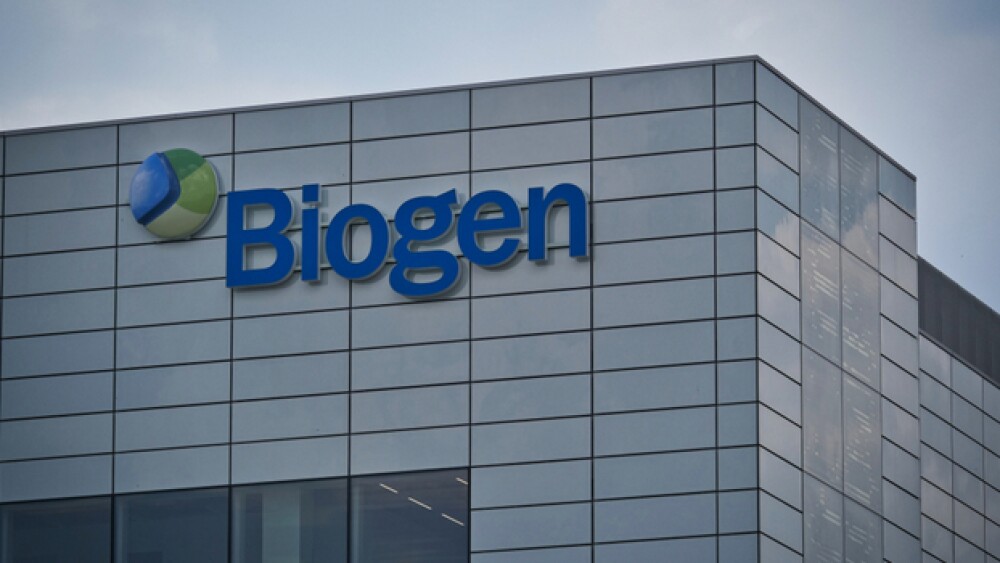With Biogen’s potential treatment for Alzheimer’s, aducanumab, coming in weeks before a U.S. FDA decision, ICER wrote a punishing report slamming the drug for insufficient efficacy and recommending a low price point if approved.
PictureDesignSwiss/Shutterstock
With Biogen’s potential treatment for Alzheimer’s, aducanumab, coming into its final weeks before a U.S. Food and Drug Administration (FDA) decision, the Institute for Clinical and Economic Review (ICER) wrote a punishing preliminary report slamming the drug for insufficient efficacy and recommending a low price point if approved.
ICER is an independent non-profit organization that evaluates medical evidence and issues reports, and holds public committee meetings related to drug pricing and healthcare.
Biogen’s aducanumab, which has had a twisty road to an FDA target action date of June 7, is an antibody that targets a conformational epitope found on beta-amyloid.
The predominant theory of Alzheimer’s is that an abnormal accumulation of beta-amyloid and another abnormal protein, tau, causes the cognitive and memory issues associated with the disease. Neuro-inflammation is also another significant factor, and it appears that beta-amyloid may trigger that neuro-inflammation.
In March 2019, Biogen and Tokyo-based Eisai announced they were abandoning their Phase III ENGAGE and EMERGE trials of aducanumab and the EVOLVE Phase III trial and the long-term extension PRIME Phase Ib trial after an independent monitoring committee reported they were unlikely to meet their primary endpoint.
Then, in October of that year, they shocked the industry by announcing plans to submit the drug to regulators. After a fuller analysis, the Phase III EMERGE trial hit the primary endpoint, demonstrating a significant decrease in clinical decline. They presented the data at a conference in December 2019, filed for a Biologics License Applications in early 2020.
The data is very complex and has not won over skeptics. In November 2020, the FDA’s Peripheral and Central Nervous System Drugs Advisory Committee slammed the drug submission, ultimately voting against recommending the drug. The FDA is not obligated to follow the recommendation but often does.
However, the FDA may take into consideration how few other options there are for Alzheimer’s and understand that, as an unexpected Wall Street Journal op-ed noted, rejecting the drug “could set back Alzheimer’s drug development by years and discourage investment against an affliction that causes terrible hardship. It would send the signal that the FDA will turn a blind eye to complexity—and that it cares more about its own reputation among certain medical elites than for patients.”
If it should be approved, analysts have forecasted annual sales of about $4.8 billion by 2026. It is also projected a price tag of about $50,000 per year per patient.
This is where ICER’s report throws a wrench into the gears. To meet the organization’s threshold for cost-effectiveness, they think aducanumab should—if approved—be priced between $2500 and $8300 per patient per year. ICER says the $50,000 price “would not be reasonable.”
The organization said the clinical trial results were “insufficient” to determine if the drug actually helped patients.
David Rind, ICER’s chief medical officer, said, “It was a really hard problem to figure out what happened here. It’s not just because the trials disagree but also the entire arc of the way the evidence was ultimately interpreted, from the early decision to stop the trials for futility to then go back and decide to look at the data again.”
It’s important to note that ICER has no official standing on drug pricing or FDA decisions. They are, however, increasingly influential with payers. The existing drugs for Alzheimer’s only moderate symptoms and not very well. Aducanumab, however, is an infusion, and the potential neurotoxic side effects would require specialized training for physicians or limit the drug to specific treatment centers.
The WSJ analysis of the benefits also pushes back against some other organization’s skepticism, that after 78 weeks of treatment, patients who received the high dose of the drug were 84% “less of a burden to care givers than were the controls.” There was a 91% reduced decline in their ability to prepare a meal and 39% slower reduction in ability to discuss current events. “In short,” WSJ wrote, “patients treated with high doses of Biogen’s drug were much more independent and capable.”
It was pointed out that the FDA’s advisory committee that voted against the drug was made up of neuroscientists, but none who treat Alzheimer’s patients.
The ICER report authors included Grace A. Lin, MD, associate professor of Medicine and Health Policy, University of California, San Francisco; Melanie D. Whittington, Ph.D., MS, associate director of Health Economics, Institute for Clinical and Economic Review; Patricia G. Synnott, MS, MALD, Senior Manager, CEA Registry & Global Health Initiatives, Center for the Evaluation of Value and Risk in Health; Avery McKenna, Research Assistant II, Evidence Synthesis, Institute for Clinical and Economic Review; Jon Campbell, Ph.D., MS, senior vice president for Health Economics, Institute for Clinical and Economic Review; Steven D. Pearson, MD, MSc, president, Institute for Clinical and Economic Review; and David M. Rind, MD, MSc.





